The man behind the voice of Scottish football
- Published

Archie Macpherson has long been the most famous voice in Scottish football
Archie Macpherson was the most famous voice and comb over in Scottish football for decades but if it had not been for an Indian brush salesman he might have stayed a teacher.
From his first commentaries in the early 1960s to the present day, Macpherson has been one of the most recognisable faces and hairstyles in Scottish football.
His heyday was in the 1970s and 80s, although he has only recently cut down on the work he does.
His most memorable match is the one he is perhaps best-remembered for - Scotland's game against Holland in Argentina 1978.
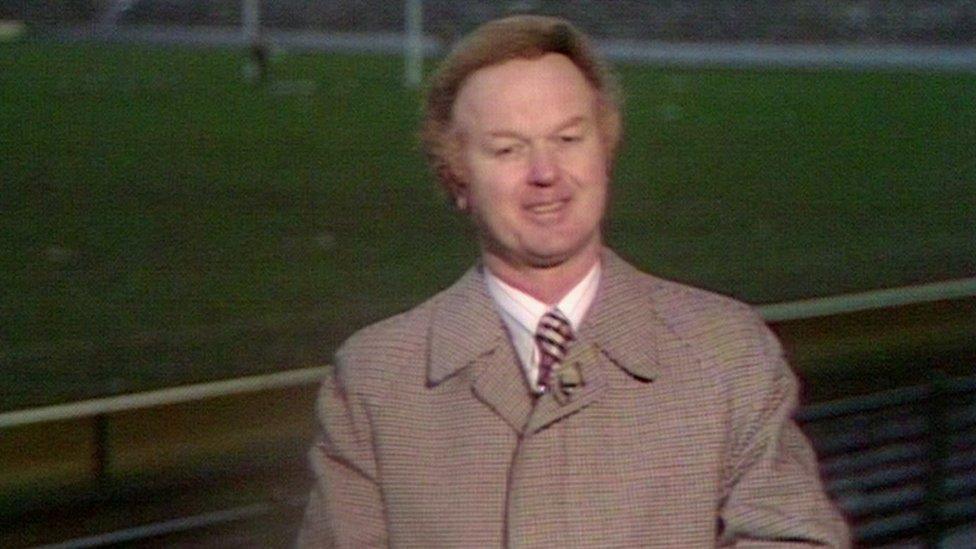
Archie's hairstyle was as famous as his voice
"When Archie Gemmill scored perhaps the most famous goal in Scottish footballing history," he tells BBC Scotland's Stark Talk programme.
"That was very special.
"It was abroad. It came at a time when our morale was very low indeed and he was able to perform a goal that was like a wee boy in a school playground."
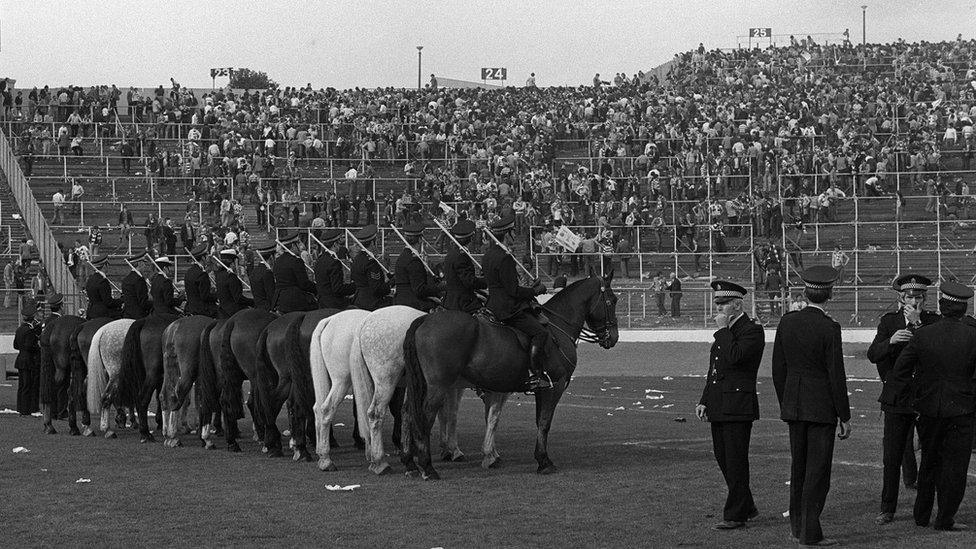
Mounted police after fans had been cleared from the pitch at the 1980 Scottish Cup Final
Another of Macpherson's best-known commentaries came a couple of years later when the 1980 Scottish Cup Final between Celtic and Rangers turned into an infamous riot.
He says: "The game itself was pretty awful. The riot was spectacular and it saved me because there was nothing to say about the football itself.
"When I described the riot, I was summing up all the feelings I had about the bigotry and sectarianism and some of my quotes are still used."
At one stage he compared the scene to Passchendaele, one of the bloodiest battles of World War One.
"Maybe I overdid it," he says.
"In a sense you were stimulated and provoked into using exceptional language to try to summarise what your feelings were."
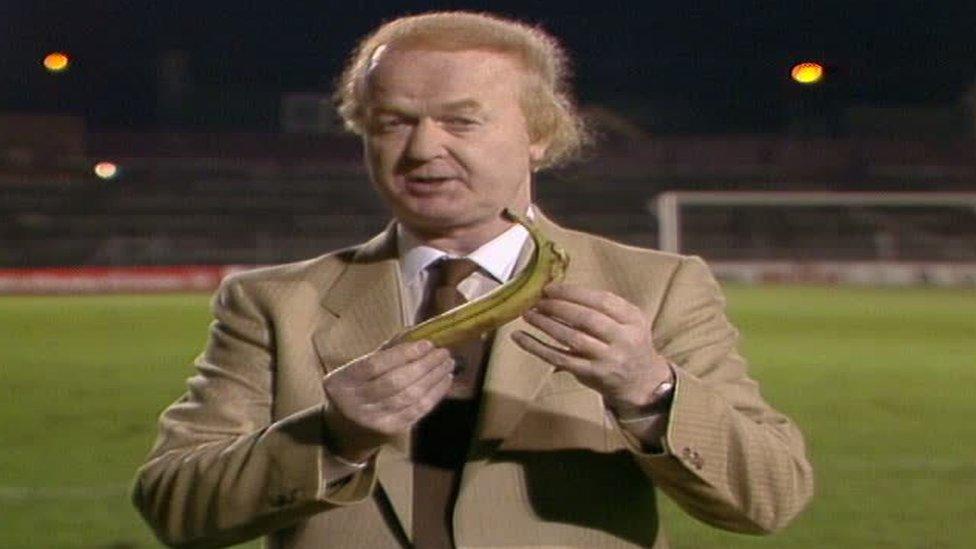
Archie with the banana which had been thrown at Rangers player Mark Walters in 1987
Macpherson was born and brought up in Glasgow's Shettleston Road "within shouting distance of Celtic Park".
His father was a football player at a decent level but despite being "very fast" young Archie was never good enough to make it.
Instead he excelled at English and became a teacher in the North Lanarkshire village of Glenboig in 1957.
Macpherson thought Glenboig, best known for brick-making, was a backwater and he was keen to move on but it was here that he met Jess McCracken, who has been his wife for 57 years.
It was also in Glenboig that he got the inspiration for a short story that he says changed his life.
He says: "I owe a lot of my eventual professional life to an Indian brush salesman because one day, teaching in a North Lanarkshire school, I looked out of the window and saw him with a wee boy following him.
"He was going to the doors and they were getting shut in his face. I thought 'that might make a short story'."
BBC Scotland took his story and had it voiced by an actor but Macpherson thought he could have done it better.
"I wrote another story for the BBC and this time I asked to read it," he says.
Macpherson, who has always looked comfortable on live television no matter what disasters unfolded around him, says he was absolutely terrified the first time he sat in front of a microphone.
"It looked like a hooded cobra staring at me, about to strike," he says.
"Terror took over for a few seconds and I can't remember actually broadcasting that at all. I was just frozen."
His performance must have impressed someone because before long he was reporting on football games for the BBC, starting in October 1962.
However, when he went to Lisbon to watch Celtic win the European Cup in 1967 he was still a head teacher at a Glasgow primary school, with his wife filling in for him when he was away.
Soon after that the BBC offered him a full-time contract and the golden years of Macpherson commentary began in earnest.
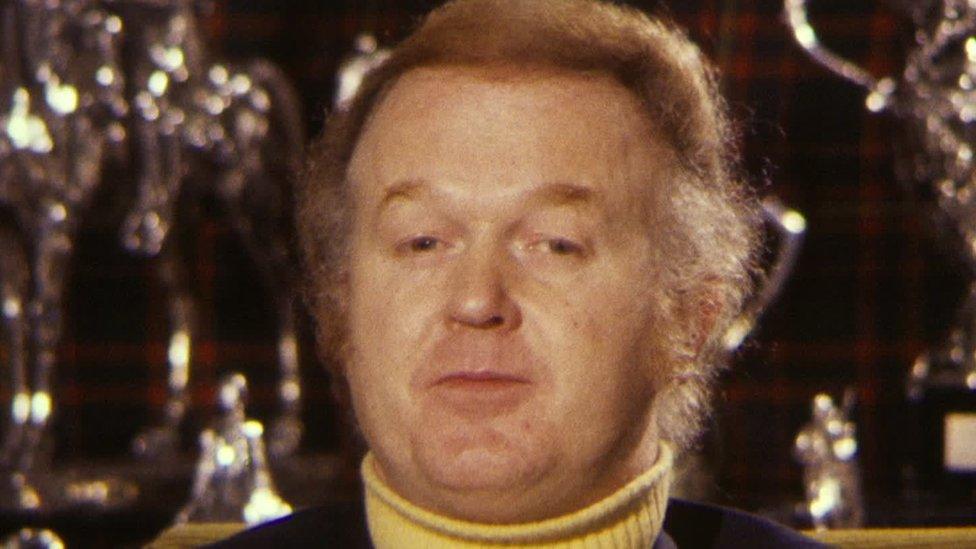
He grew in confidence as a broadcaster but admits that Scottish football managers could be pretty scary.
"Sir Alex Ferguson and I had a gunfight at the OK Corral," he says.
The pair were friendly and had even socialised with their wives.
"Then I criticised his goalkeeper once and he met me in the foyer of Easter Road, about two or three months before he went to Manchester United," Macpherson says.
"He suddenly let rip. We were nose to nose."
He says there was no physical contact but the language was something he would not have wanted his mother to hear.
"He's a brilliant manager but what a temper," he says.
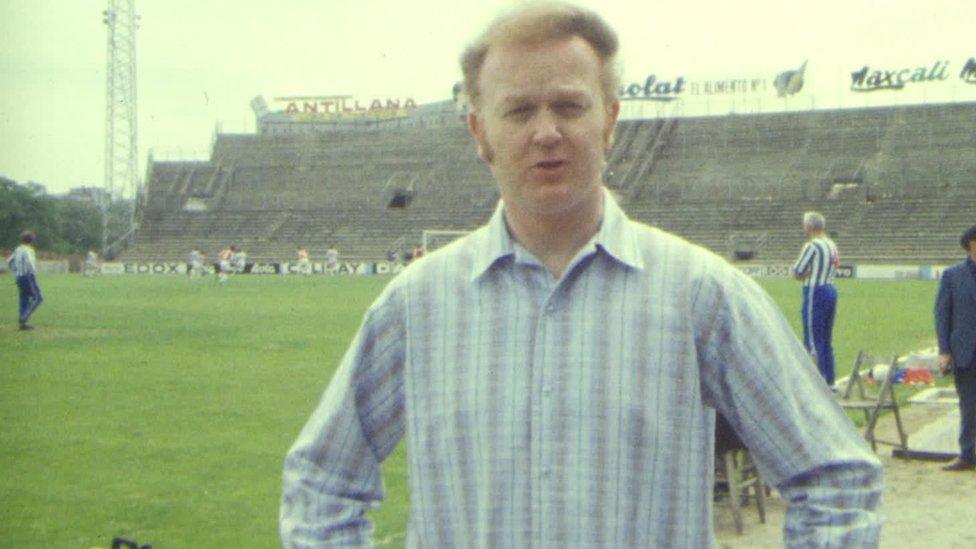
By the time of his run-in with Sir Alex, Macpherson already had years of experience with other football "hard men" such as Jock Wallace, Willie Waddell and Jock Stein.
Macpherson says Celtic's legendary manager had a particular dislike for the BBC, feeling it was Rangers orientated.
"I went across to Parkhead, saw him in the lion's den, and spoke frankly about things," Macpherson says.
Stein agreed to do an analysis of a game with the BBC reporter, a rare event.
"There was such a hatred for Stein at that time," Macpherson says.
"I fought against that and won."
Macpherson believes he encountered sectarianism among his journalistic colleagues - and he was appalled by it.
Does he think he changed it?
"It would be terribly arrogant of me to say so but I'm going to say 'yes'."
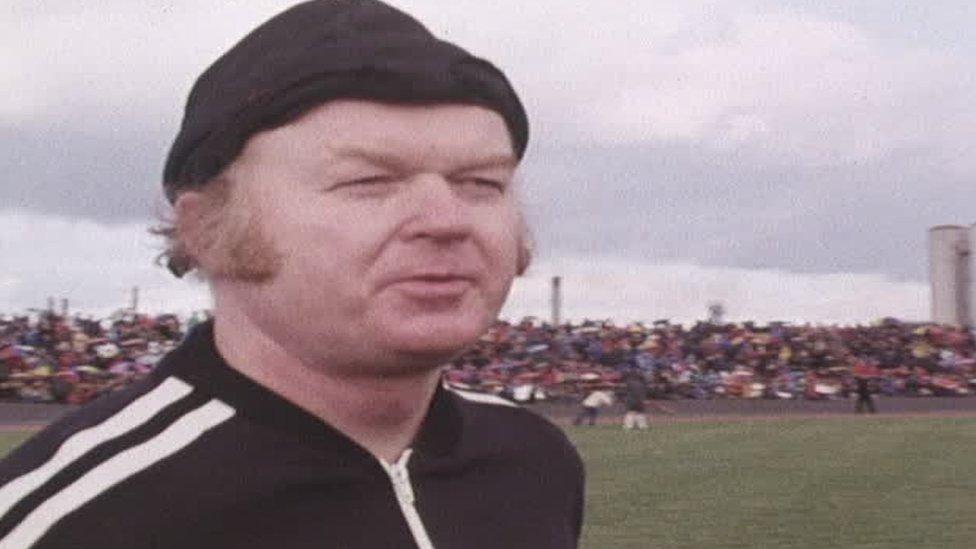
Macpherson says he was driven and ambitious during his career and admits that he enjoyed the "gilded" lifestyle that came with being a prominent TV personality.
However, he also spoke of "the Vampire", spells of depression that made his life a "living hell".
"I suffered badly from depression when I was at the height of my so-called fame," he says.
"I really was in a dark tunnel."
"There I was upfront, every Saturday night and yet I would go home feeling 'what the hell is life all about'?"
He says he recovered gradually, gathering strength by talking to people about his problems.
Now in his 80s, Macpherson has been confronted with serious illness in recent years.
He had bladder cancer in 2013 and lost a kidney. He still needs a check-up every six months.
His wife Jess has also struggled with an illness that has affected her eyesight.
"She is wonderful, in the sense that how she has put up with me all these years I'll never know."